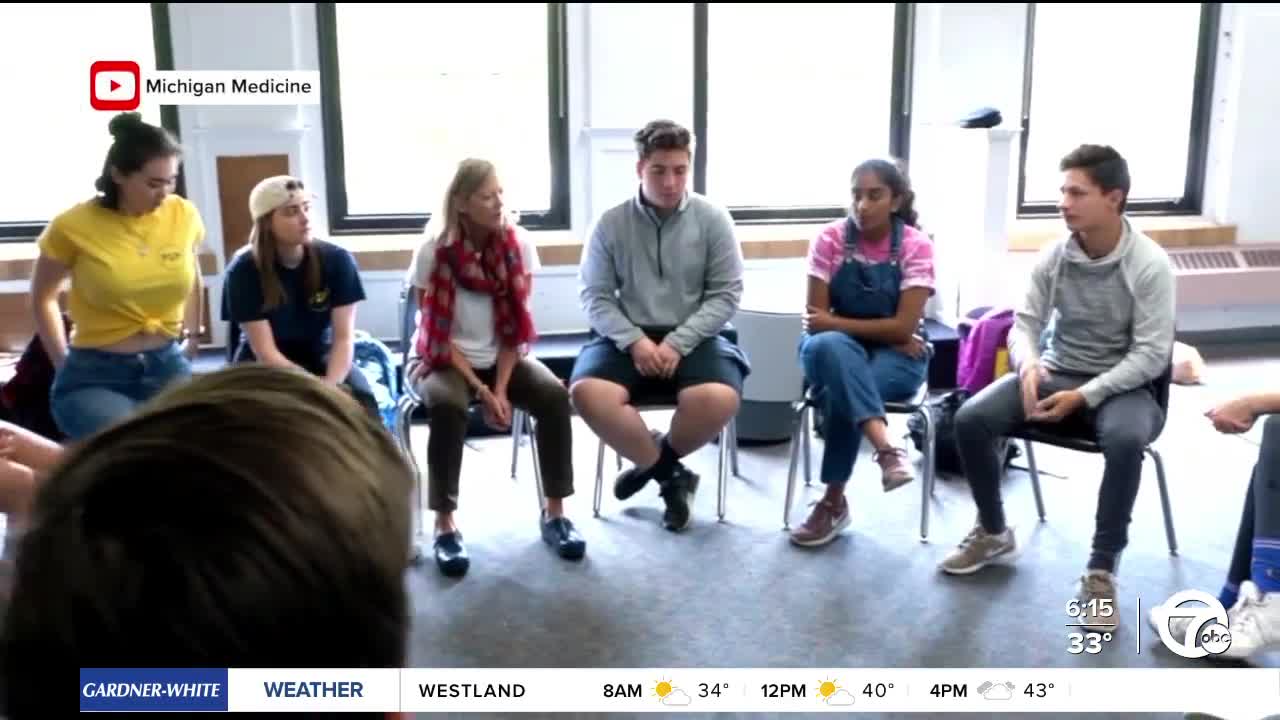(WXYZ) — A recent report from the CDC shows a concerning rise in sadness, hopelessness and exposure to violence among teens, particularly girls and LGBTQ+ youth.
The CDC said a combination of factors can put young people at high risk for suicide, depression, substance use disorder and poor academic performance.
The report says more than one in four girls report seriously considering attempting suicide in 2021, up nearly 60% from 2011. But they also say with the right programs and services in place, schools have the unique ability to help students thrive, and there is a program here in Michigan helping students offer their peers a lifeline.
"I've had mental health issues pretty much my entire life," McKenna Duman, a senior at Community High School in Ann Arbor, said. She was first diagnosed with Generalized Anxiety Disorder in the 3rd grade.
"It was really affecting my life a lot because I was worrying about everything," McKenna said.
Now, McKenna is a member of her school’s Peer-to-Peer Depression Awareness program. It’s a student-led adult-supported effort that trains teens about depression, anxiety and other mental health disorders. Students then create custom in-school mental health campaigns to reduce stigma, raise awareness, encourage help-seeking, and promote early detection.
"We know that peers are talking to each other, right? So we really empower them with the language that they need. Like, no, it's not normal to have high rates of anxiety all the time. Like, when might I need more help," Stephanie Salazar, from the University of Michigan Eisenberg Family Depression Center, said.
It started in 5 Ann Arbor schools in 2009 and has spread to more than 50 schools in four states - with interactive training for students.
Since many mental health disorders start in adolescence, the premise is to equip middle and high schoolers to spot signs of distress and direct their peers to the right resources.
"How important is it to hear these messages coming from a peer as opposed to an adult, even a trusted adult?" I asked.
"It's so important. And that's why this program was built, because we know I can go give a presentation about depression and anxiety, and that's all in well, but it doesn't have the same impact," Salazar said.
McKenna says the impact is real. She used her training to get help for a classmate at risk for self-harm.
"I went to a teacher and the teacher contacted Dean and they have like a whole plan in place," McKenna said.
Survey data backs showing peer-to-peer increases knowledge among students, reduce stigma, and promotes help-seeking intentions.
It's crucial in an age of social media pressure and campus violence with tragedies at Oxford High School and Michigan State University.
"It being so close to home, you know, we had students who felt this more than once in the last two years, and it's got to impact you in a negative way," Salazar said.
The Eisenberg Family Depression Center also has resources to support college mental health as well and that includes a conference on depression on college campus in person on March 14 and 15. In Ann Arbor. The conference is free for any student from any school.
The Eisenberg Family Depression Center also has free resources available at depressioncenter.org



